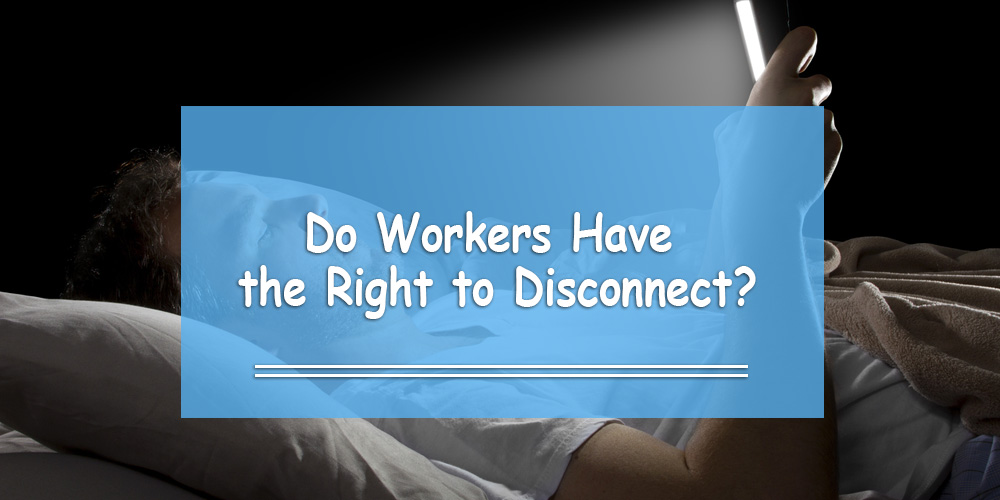What was your New Year’s Resolution for 2017? Was a work-related goal? Was it a personal goal to help eliminate stress? Maybe it was it to spend less time online, give yourself the right to disconnect and work on improving real friendships?
All of these goals just got a little easier to accomplish… that is if you live in France.
French Workers Win the ‘Right to Disconnect’ from the Workplace
Overuse of digital devices is an issue many adults face, within several industries. It has led to countless nights of sleeplessness, relationship problems, and the inability to switch off. With the Internet taking over many aspects of our lives, people have a tough time trying to find a work/life balance. In fact, French research group Eleas published a study and showed that 37% of French workers used their devices to do work after hours every day.
In an effort to improve the work culture and reduce burnout among workers, the French government did something unprecedented. They passed an employment law that requires organizations with more than 50 workers to start negotiations to define the rights of employees. They made it effective on January 1, 2017.
What Does This Mean?
1. The ‘Right to Disconnect’ from Email at Home
First and foremost, this grants workers’ rights for French employees. They now have the ‘right to disconnect’ from technology, not having to worry about answering emails outside of working hours.
Some large European corporations like Volkswagen and insurance company Axa in France have already taken the initiative to limit employees’ online messaging after hours. Some measures include cutting email connections in the evening and weekends. Some companies like Daimler (also in Germany) take it even further by creating automated systems like Mail on Holiday that destroys emails sent to employees while they are on holiday and informs the email sender that the person is out of the office.
2. There Is a Mutual Agreement about Digital Overtime
Now that a law has been passed in France about work-related overuse of digital devices, this means that employers have to think about their business in a different way, one that positively affects their staff. One major point is that France’s (now previous) work culture was taken for granted: it was unpaid and they weren’t conscious of how this impacts their employees’ health.

With everything documented now, people have the ability to relax when they’re at home. Employers can join the likes of the companies noted above and negotiate when to switch off and how to ensure that work will not invade their privacy.
What Can We Learn from France’s Government?
Of course, the question on everyone’s minds now is, “Should we follow in France’s footsteps?”
The work cultures in the UAE, KSA, Qatar, and other countries in the Arab region are quite different from France’s. Ergo, the policies (and the way we implement them) are going to be different.
Nevertheless, there is one underlying issue, and it’s one that affects everyone around the world: the overconsumption of technology. It’s important to distance yourself from work once you leave the office. It relieves you from work-related stresses, especially when your work revolves around constant back-and-forth email.
In addition, we should all have the right to disconnect at the routine level. Mobile technology has done wonders for us to get immediate responses from people, but let’s not forget that we’re all human and we need to switch off from work. This is something no one should neglect.
Over to You!
People around the world are constantly trying to improve their livelihoods. Do you think a policy like this could work in a GCC country at the governmental level? Do we have a governmental ‘right to disconnect’, or should we let employers decide what’s best for their employees.
If you do believe a policy like this should be mandated, how would you implement it? How different would it be from the way France does it right now? Would you simply require that the employer should negotiate with their employee, or do you make a stricter law for employers in order to protect employees?
If you don’t believe in the government getting involved, why? Are things fine the way they are? Do you not believe employers and governments are responsible for how employees function in the workplace? What do you see as a solution for those who are stressed out from the work/life mix?
Let us know in the comments section below!


